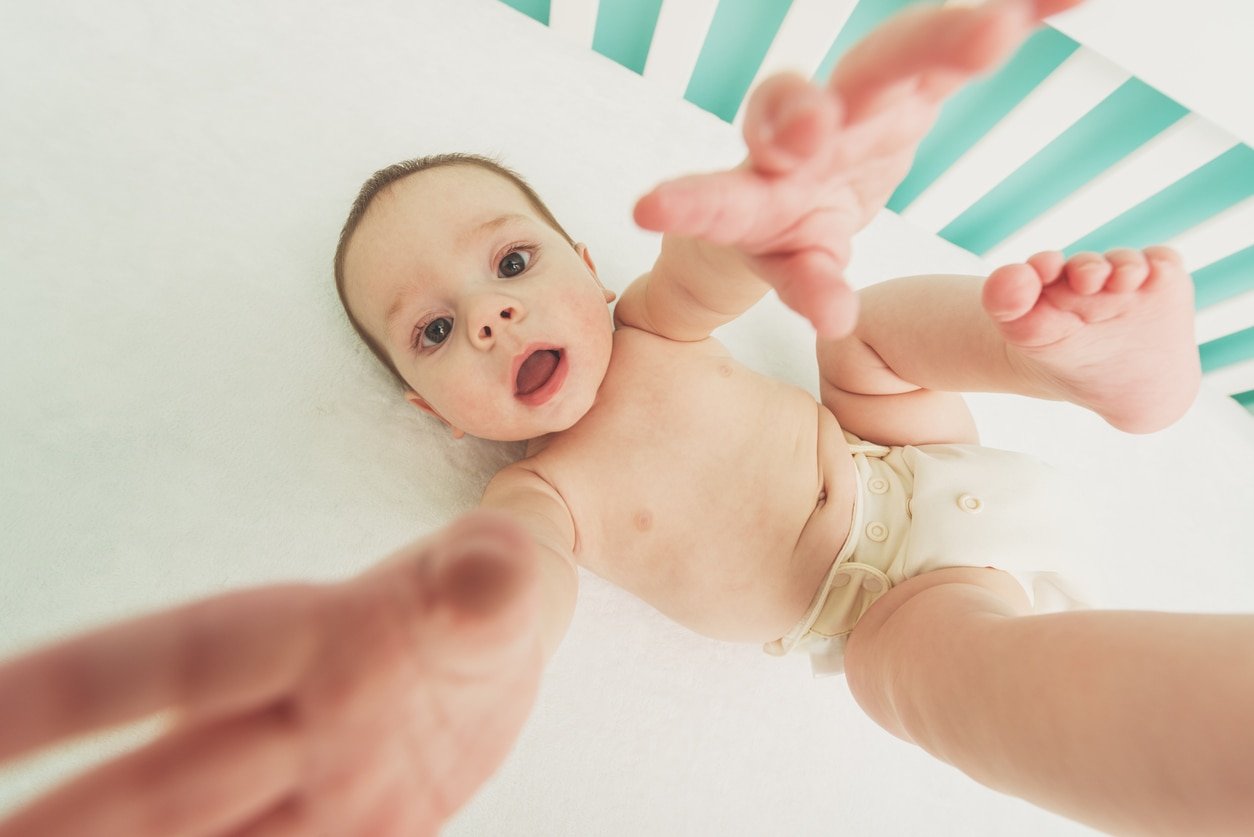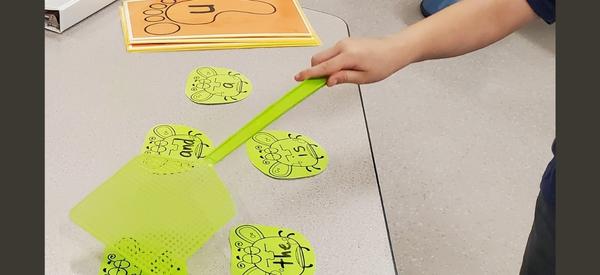Most parents remember the first time they were away from their babies. Whether they left them with the other parent, a grandparent, or a babysitter. That first time is tough. Many moms feel incredibly guilty when they leave their infants with someone, even if it’s for a short time.
At first, babies may seem like sacks of potatoes — adorable sacks of potatoes — who are still trying to figure out what their hands are. How much do they understand about what’s going on around them? Does your baby miss you when you leave them? They’re still dependent on you, and you’re obviously longing for your baby to show they love you and care that you’re not there. But not too much, so the “mom guilt” isn’t something fierce. What happens when you must take a break or go back to work?
Does My Baby Miss Me When I’m Away?
Short answer: Of course they do! However, it’s not as traumatic and horrible as you may think when you’re leaving and they’re crying and reaching for you.
Children between six and nine months old have the cognitive ability to start missing their parents, says Dr. Daniel Ganjian, a pediatrician at Providence Saint John’s Health Center in Santa Monica, California.
Signs your baby misses you can include not eating well at first or even looking around for you. They’ll also show considerable happiness when their parents return to them, Dr. Ganjian says.
Ganjian urges parents to realize they’re not causing trauma when they leave, and their child misses them. He says they stop crying quickly — an average of 80 seconds.
And in the beginning, you don’t have to worry as much. Newborns only worry whether someone is meeting their needs, and it doesn’t matter who that is.1 It isn’t until they’re between five and eight months old that they begin to miss you. And object permanence is the reason for your baby missing you when you’re not there.1
Object Permanence and Babies
If your baby loves peek-a-boo, it’s because of object permanence. Object permanence means your baby doesn’t know an object can exist even if they don’t see it. Their parents leaving a room or the house is one reason they may get upset. Once they’ve hit this cognitive milestone, they’ll start missing you (and anything) they’ve grown fond of.1,2
Does My Baby Have Separation Anxiety?
Separation anxiety is quite common for babies and even toddlers, and it’s all part of the development process. When your baby starts to experience this, they may show they’re afraid, nervous, or downright irritated when their parents leave.1 This is because they now know and understand that you exist even if they can’t see you, and they’re not happy because you’re not with them.
Babies don’t understand time. So when their parents leave, they think they’re gone forever. Babies don’t understand that their parents are still here, as in here on earth, and they will return.3
Signs of separation anxiety that stem from you leaving include crying when you leave the room. It can also be clinging or crying in new situations, awakening and crying at night after previously sleeping through the night, and a refusal to go to sleep when a parent isn’t nearby.3
You Can Help Reduce the Anxiety
To reduce your separation anxiety, Ganjian says to “fake it ’till you make it.” He says it helps to smile as you leave, give them a quick hug and a kiss, and tell them you’ll be back soon. The more drawn out this process is, the worse it is for everyone.
However, “If the child cannot be calmed within 30 minutes and this happens repeatedly for more than a week, there can be something else going on, especially if it is coupled with some stress in the family, or if a parent has some psychological issues himself,” Ganjian says.
And even if your baby is the happiest baby on the block and doesn’t cry or isn’t irritated when you leave, that mom guilt will get most parents every time, even if it’s just at first.
Mom Guilt: Why We Have It and What to Do About It
Kaitlin Soule, LMFT, therapist, author, and speaker, says moms feel guilty because the intensity of our baby’s needs is so high that we often lose ourselves in taking care of them. “While it goes without saying that we love our tiny humans more than life itself, it’s all very exhausting. And so when we leave our babies, we often feel both a sense of relief AND anxiety. The relief comes from getting some space to pay attention to our own needs again, and the anxiety or tension comes from fear,” she says.
She adds that many moms fear that nobody else will be able to care for their baby as well as they can. Guilt comes to us from unhelpful cultural messages, our families of origin, and even the media. “One of those notions that I find to be most harmful is the idea that once we become mothers, we should WANT to give our identity over to the role completely and (worst yet) with ease,” she says.
It’ll Get Easier
Thankfully, the mom guilt feeling does get easier with time, as your baby grows and becomes a little less dependent on you with their immediate needs. And as moms begin to recognize the importance of self-care and their identities, Soule says.
“While it seems obvious, contrary to a lot of the messaging we get from society, moms are whole humans who deserve to live a full life. We can’t feel the joy that comes from pursuing our passions, making an impact in the world, or having healthy relationships if our entire self is wrapped up in just one of our roles,” she says. While the role of mom might be our most notable and challenging role, it is not the only one, Soule added.
So yes, your babies do miss you while you’re away. But you’re not causing severe trauma, and they should quickly stop crying or acting out after you leave. Leaving quickly, telling them you’ll be back, smiling, and kissing them ensures they’ll be more comfortable with you going, and the “missing you” part will be sweet and not full of anxiety for anyone. Remember to take care of your needs, too, and know the mom guilt is temporary. They’ll be okay, and you’ll be okay too.

 PARENTING TIPS
PARENTING TIPS PREGNANCY
PREGNANCY BABY CARE
BABY CARE TODDLERS
TODDLERS TEENS
TEENS HEALTH CARE
HEALTH CARE ACTIVITIES & CRAFTS
ACTIVITIES & CRAFTS


